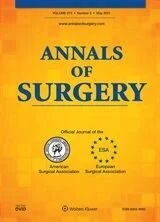Just published by two Orthopedics groups in Philadelphia…they calculated an average annual savings of $281,298.05 -- for Total Knee and Total Hip cases alone.
OpFlow has consistently seen a significant opportunity for instrument reduction in the Orthopedics service line at hospitals across the country.
Great study published this month in the American Journal of Otolaryngology by the group at New York Eye and Ear Infirmary of Mount Sinai. Their efforts achieved an instrument reduction of 64% for rhinoplasty cases, enabling an average cost savings on instrument processing of $62 to $93 per case.
Read MoreThe Dept. of Ophthalmology at Univ. of Chicago published results demonstrating significant direct cost savings and other indirect benefits from reducing surgical instrument trays. They concluded: "Applying these same methods to other surgeons and specialties can have significant implications on healthcare costs and quality."
Read More"Almost all studies assessing interventions to reduce intraoperative costs have demonstrated cost savings with no apparent increase in adverse effects...hospitals seeking to reduce costs may be able to do so safely by standardizing operative instruments or providing cost feedback to surgeons."
Read MoreOur on-site personnel are dedicated to ensuring a smooth process spanning from data collection all of the way through to successful deployment of your optimized instrument trays.
Read MoreThe Virtual Analysis offered by OpFlow leverages its vast database on actual, procedure-based instrument usage to determine where the greatest opportunity is for your hospital.
Read MoreThe OpFlow risk-share model guarantees that your hospital will benefit from the implementation of our process, at no upfront cost.
Read MoreExcellent review article just published by authors at Children’s Mercy Hospital in Kansas City in the Journal of Pediatric Surgery demonstrating the benefits of instrument tray optimization.
Read MoreAs parts of the country begin to emerge from the crisis, preparations are taking place to safely resume elective surgery. OpFlow is providing a no-charge, virtual analysis that will enable hospitals to reduce avoidable cost and realize efficiency gains to support the return of surgical volume.
Read MoreExcellent study published this month in the Journal of Operations Management. The authors estimated that unplanned costs amounted to $1,800 per surgery - equating to a potential cost avoidance of $28 million per year, at that hospital alone.
Read MoreThe key limitation faced by efforts to reduce avoidable costs associated with the anachronistic preference card system is the lack of accurate, reliable data on actual disposable supply usage in the OR.
Read More











